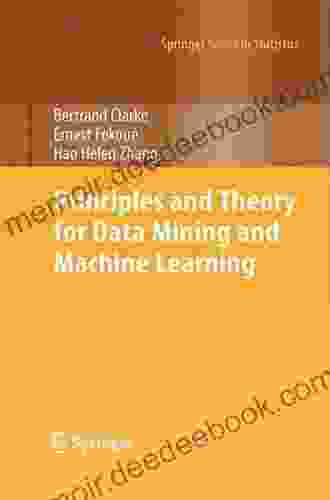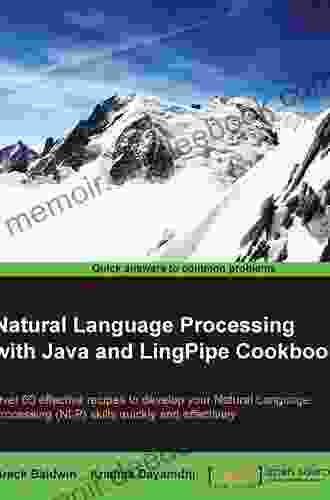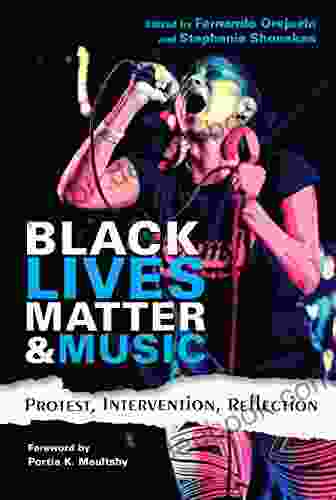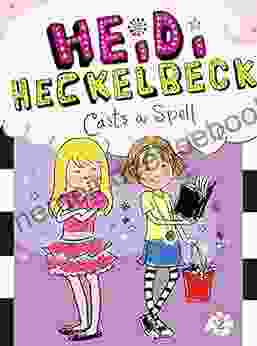Protest Intervention Reflection: Activist Encounters in Folklore and Beyond

4.2 out of 5
| Language | : | English |
| File size | : | 1494 KB |
| Text-to-Speech | : | Enabled |
| Screen Reader | : | Supported |
| Enhanced typesetting | : | Enabled |
| Word Wise | : | Enabled |
| Print length | : | 140 pages |
Protest interventions are a powerful tool for social change. They can raise awareness about important issues, challenge norms, and create dialogue. Activists have used protest interventions for centuries to fight for justice and equality. In recent years, protest interventions have become increasingly common as a way to address a wide range of social issues, from climate change to police brutality.
There are many different types of protest interventions. Some are artistic, such as street theater or performance art. Others are more disruptive, such as blockades or sit-ins. No matter what form they take, protest interventions are always intended to make a statement and to provoke a response.
Protest interventions can be an effective way to raise awareness about important issues. By using creative and attention-grabbing tactics, activists can capture the public's attention and force them to confront issues that they might otherwise ignore. For example, the Occupy Wall Street movement used a variety of protest interventions, such as street theater and public assemblies, to raise awareness about economic inequality.
Protest interventions can also be used to challenge norms and to create dialogue. By disrupting the status quo, activists can force people to question their assumptions and to consider new perspectives. For example, the Black Lives Matter movement has used protests and other forms of intervention to challenge the narrative about police brutality and to demand justice for Black people.
Protest interventions are not without their challenges. Activists who use protest interventions often face criticism and opposition from those who disagree with their message. They may also face legal challenges and even violence. However, despite the challenges, protest interventions remain an important tool for social change.
The Role of Folklore in Protest Interventions
Folklore plays an important role in protest interventions. Activists often draw on folklore traditions to create their interventions. For example, the Occupy Wall Street movement used the folk song "This Land Is Your Land" as a protest anthem. The Black Lives Matter movement has used the spiritual "We Shall Overcome" as a rallying cry.
Folklore can provide activists with a sense of identity and community. It can also provide them with a framework for understanding and responding to social injustice. For example, the folk song "Joe Hill" tells the story of a labor organizer who was executed for his beliefs. This song has been used by activists for generations to inspire them to fight for justice.
Folklore can also be used to document and preserve the history of protest movements. For example, the Smithsonian Institution's National Museum of American History has a collection of protest posters and other artifacts that document the history of social movements in the United States.
The Ethical Considerations of Protest Interventions
There are a number of ethical considerations that activists must take into account when using protest interventions. First, activists must ensure that their interventions are safe and do not harm others. Second, they must respect the rights of others, including the right to free speech and assembly. Third, they must be mindful of the potential consequences of their actions.
For example, an activist who blocks a road to protest climate change may be breaking the law. However, the activist may believe that their actions are justified because they are trying to raise awareness about a critical issue. It is important for activists to weigh the potential benefits and harms of their actions before they decide to use protest interventions.
The Future of Protest Interventions
Protest interventions are likely to continue to play an important role in social change. As social movements become more globalized and interconnected, activists are increasingly using protest interventions to raise awareness about issues that affect people all over the world. For example, the #MeToo movement has used social media and other forms of protest intervention to raise awareness about sexual assault and harassment.
The future of protest interventions is uncertain. However, one thing is clear: protest interventions are a powerful tool for social change. Activists will continue to use protest interventions to fight for justice and equality for all.
Protest interventions are a powerful tool for social change. They can raise awareness about important issues, challenge norms, and create dialogue. However, protest interventions are not without their challenges. Activists who use protest interventions often face criticism and opposition from those who disagree with their message. They may also face legal challenges and even violence. Despite the challenges, protest interventions remain an important tool for social change.
The role of folklore in protest interventions is significant. Folklore can provide activists with a sense of identity and community. It can also provide them with a framework for understanding and responding to social injustice. Folklore can also be used to document and preserve the history of protest movements.
There are a number of ethical considerations that activists must take into account when using protest interventions. First, activists must ensure that their interventions are safe and do not harm others. Second, they must respect the rights of others, including the right to free speech and assembly. Third, they must be mindful of the potential consequences of their actions.
The future of protest interventions is uncertain. However, one thing is clear: protest interventions are a powerful tool for social change. Activists will continue to use protest interventions to fight for justice and equality for all.
Further Reading
- The Long Tradition of Protest Art in America
- Protest art: a history
- The Ethics of Protest Art
4.2 out of 5
| Language | : | English |
| File size | : | 1494 KB |
| Text-to-Speech | : | Enabled |
| Screen Reader | : | Supported |
| Enhanced typesetting | : | Enabled |
| Word Wise | : | Enabled |
| Print length | : | 140 pages |
Do you want to contribute by writing guest posts on this blog?
Please contact us and send us a resume of previous articles that you have written.
 Book
Book Page
Page Story
Story Genre
Genre Reader
Reader Library
Library Magazine
Magazine Newspaper
Newspaper Sentence
Sentence Shelf
Shelf Glossary
Glossary Bibliography
Bibliography Foreword
Foreword Preface
Preface Synopsis
Synopsis Annotation
Annotation Scroll
Scroll Codex
Codex Tome
Tome Bestseller
Bestseller Narrative
Narrative Autobiography
Autobiography Encyclopedia
Encyclopedia Resolution
Resolution Catalog
Catalog Card Catalog
Card Catalog Stacks
Stacks Archives
Archives Study
Study Research
Research Academic
Academic Journals
Journals Reading Room
Reading Room Rare Books
Rare Books Special Collections
Special Collections Interlibrary
Interlibrary Study Group
Study Group Thesis
Thesis Storytelling
Storytelling Awards
Awards Harper North
Harper North Jill Eileen Smith
Jill Eileen Smith Gary Galles
Gary Galles David Conger
David Conger Max Adams
Max Adams William Enckhausen
William Enckhausen Marvin Himel
Marvin Himel Maciej Jonasz
Maciej Jonasz Noticesea
Noticesea Antony Barone Kolenc
Antony Barone Kolenc Kelly Leonard
Kelly Leonard Walter Everett
Walter Everett Lisa Gardner
Lisa Gardner L Steele
L Steele Pam Powers
Pam Powers John Took
John Took Ricky Schneider
Ricky Schneider Scott Rogers
Scott Rogers John B Keane
John B Keane Lynne R Parenti
Lynne R Parenti
Light bulbAdvertise smarter! Our strategic ad space ensures maximum exposure. Reserve your spot today!

 Junichiro TanizakiUnveiling the Poetic Genius of Danez Smith: A Deep Dive into Homie Poems
Junichiro TanizakiUnveiling the Poetic Genius of Danez Smith: A Deep Dive into Homie Poems
 Junot DíazUnveiling the Essence of William Golding's Lord of the Flies: A Comprehensive...
Junot DíazUnveiling the Essence of William Golding's Lord of the Flies: A Comprehensive... Junot DíazFollow ·16.9k
Junot DíazFollow ·16.9k José SaramagoFollow ·15.6k
José SaramagoFollow ·15.6k Spencer PowellFollow ·16k
Spencer PowellFollow ·16k Angelo WardFollow ·6.5k
Angelo WardFollow ·6.5k George BellFollow ·5.2k
George BellFollow ·5.2k William WordsworthFollow ·11.5k
William WordsworthFollow ·11.5k Dale MitchellFollow ·13.1k
Dale MitchellFollow ·13.1k Julian PowellFollow ·11.3k
Julian PowellFollow ·11.3k

 Vernon Blair
Vernon BlairHow to Get a Woman to Pay for You: A Comprehensive Guide...
In the modern dating...

 Levi Powell
Levi PowellPrinciples and Theory for Data Mining and Machine...
Data mining and machine learning are two...

 Andrew Bell
Andrew BellMirrors For The Mind: Milestones In Discovery And...
Mirrors have been a part of human history...

 Alec Hayes
Alec HayesDelving into Natural Language Processing with Java and...
Natural Language Processing (NLP) is an...
4.2 out of 5
| Language | : | English |
| File size | : | 1494 KB |
| Text-to-Speech | : | Enabled |
| Screen Reader | : | Supported |
| Enhanced typesetting | : | Enabled |
| Word Wise | : | Enabled |
| Print length | : | 140 pages |












